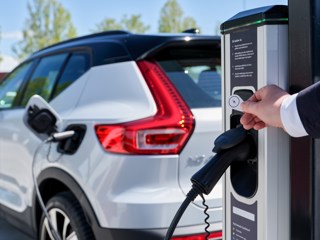The emergence of the connected car has transformed the automotive industry.
The technologies used within these vehicles are increasingly able to understand and interact with a driver’s physical environment, other vehicles – and the driver themselves – fundamentally altering our experience of mobility.
Crucially, this new generation of vehicles provides manufacturers and car dealerships with opportunities to generate customer insights and provide tailored services to their drivers by using the wealth of data now available to them.
The challenge is to retain their relationship with the customer in the face of competition from others in the market – such as software, mobility and technology providers.
Brands must rethink how they manage this relationship with customers.
Ultimately, it all comes down to driver experience – for example, if you own a car that can drive itself, focus will shift away from traditional aspects such as power or speed.
In the era of the connected car, the customer experience delivered throughout the customer journey will become a key differentiator.
Through integrating their customer service offering, and collating and sharing customer insights, manufacturers and dealerships are ideally placed to own these aspects of the relationship, but must act now to retain a competitive advantage.
Deriving value from data
A key priority is making use of the vast quantity of data available as connected vehicles become more prevalent.
It’s estimated that self-driving cars already generate around 4,000GB of data after just one hour of driving, according to Intel.
Traditionally, car companies have not had the opportunity to use customer data to its full advantage, as their access to a high volume of digital touch points has been limited.
This has created a challenge for brands as customer engagement has often reduced following a sale, with interactions limited to standard aftercare services.
But now, automotive brands can capitalise on a raft of information on everything from driving patterns and vehicle condition, to media preferences and favourite driver locations.
Armed with this level of granular vehicle data, brands can design and create innovative new products and service offerings that will enhance the driving experience and boost customer loyalty.
In particular, they will also be able to use data to understand and anticipate specific customer needs, responding proactively with value-added services and offers. Such is the scale of the opportunity that McKinsey has estimated that potential global revenues from monetising car data could reach $450 billion to $750 billion by 2030.
Next generation customer service
To truly capitalise on the data available to them, automotive companies must reassess how they deliver customer service and support. If brands can get this right now, while the market is still evolving, they will keep ahead of the competition and build loyalty that will allow them to thrive in the future.
Brands must use advanced customer relationship management (CRM) systems that allow them to collect and collate data from multiple points of contact and create a single, integrated view of the customer.
This approach means that dealerships, manufacturers and aftercare providers alike can input data and access the same information at every stage of the customer journey.
This holistic view empowers brands to provide consistent and seamless experiences, based on a customer’s precise wants and needs, regardless of how they choose to interact with the company.
Most significantly, this system enables a proactive and fully personalised communications and services offering. For example, by understanding how a customer chooses to drive their car, manufacturers can offer software modifications that optimise or limit vehicle performance – such as torque or fuel economy – based on driver preferences.
Another opportunity could be dealerships offering tailored refinancing options based on car usage and driver habits, before the customer even starts to think about purchasing a new vehicle.
This approach to customer service will also enable brands to broaden the scope of support services they are able to offer.
For issues such as purchasing replacement parts, where customers will previously have contacted their local dealer, customers now have the opportunity to order them directly through the car using a voice assistant.
Alternatively, sensors within the car can be used to detect a fault and automatically re-order parts without the need for human intervention.
Technological advances in the automotive industry are fundamentally altering the way manufacturers and dealerships will be able to interact with and service their customers.
Drivers will benefit from highly-sophisticated vehicles that are safer, more convenient and more accessible than ever.
For automotive brands, taking a collaborative and integrated approach to customer service means they have an opportunity to tap into a vast marketplace by seizing every opportunity to move closer to their drivers.
Generating in-depth insights into drivers’ wants and needs provides brands with the scope to take ownership of the customer relationship and provide proactive, personalised and meaningful experiences.
Through delivering the highest levels of service, they will be able to harness customer loyalty before other emerging players in the market, and own the relationship and the associated revenues throughout its lifecycle.
Author: David Morton, sales and solutions director at Arvato CRM Solutions UK



















Login to comment
Comments
No comments have been made yet.